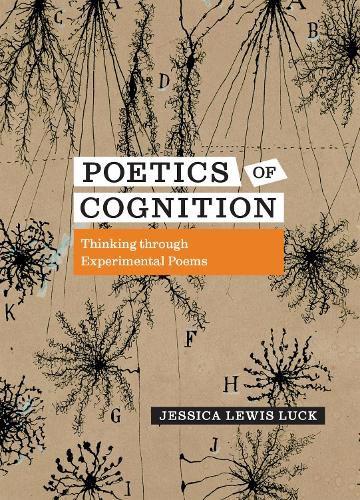Readings Newsletter
Become a Readings Member to make your shopping experience even easier.
Sign in or sign up for free!
You’re not far away from qualifying for FREE standard shipping within Australia
You’ve qualified for FREE standard shipping within Australia
The cart is loading…






Poetics of Cognition investigates the material effects of experimental poetics using new evidence emerging from cognitive science. It asks: How do experimental poems "think" and how do we think through them? Examining experimental modes such as the New Sentence, proceduralism, projective verse, sound poetry, and visual poetry, Jessica Lewis Luck argues that experimental poems materialize not so much the content as the activity of the embodied mind, and they can thus function as a powerful scaffolding for extended cognition, both for the writer and the reader. While current critical approaches tend to describe the effects of experimentalism solely in terms of emotion and sensation, Luck shifts from the feeling to the thinking that these poems can generate, expanding the potential blast radius of experimental poetic effects into areas of linguistic, sonic, and visual processing and revealing a transformational potency that strictly affective approaches miss.
The cognitive research Luck draws upon suggests that the strangeness of experimental poetry can reshape the activity of the reader's mind, creating new forms of attention, perception, and cognition. This book closes by shifting from theory to praxis, extracting forms of teaching from the forms of thinking that experimental poems instill in order to better enable their transformative effects in readers and to bring poetry pedagogy into the twenty-first century.
$9.00 standard shipping within Australia
FREE standard shipping within Australia for orders over $100.00
Express & International shipping calculated at checkout
Poetics of Cognition investigates the material effects of experimental poetics using new evidence emerging from cognitive science. It asks: How do experimental poems "think" and how do we think through them? Examining experimental modes such as the New Sentence, proceduralism, projective verse, sound poetry, and visual poetry, Jessica Lewis Luck argues that experimental poems materialize not so much the content as the activity of the embodied mind, and they can thus function as a powerful scaffolding for extended cognition, both for the writer and the reader. While current critical approaches tend to describe the effects of experimentalism solely in terms of emotion and sensation, Luck shifts from the feeling to the thinking that these poems can generate, expanding the potential blast radius of experimental poetic effects into areas of linguistic, sonic, and visual processing and revealing a transformational potency that strictly affective approaches miss.
The cognitive research Luck draws upon suggests that the strangeness of experimental poetry can reshape the activity of the reader's mind, creating new forms of attention, perception, and cognition. This book closes by shifting from theory to praxis, extracting forms of teaching from the forms of thinking that experimental poems instill in order to better enable their transformative effects in readers and to bring poetry pedagogy into the twenty-first century.